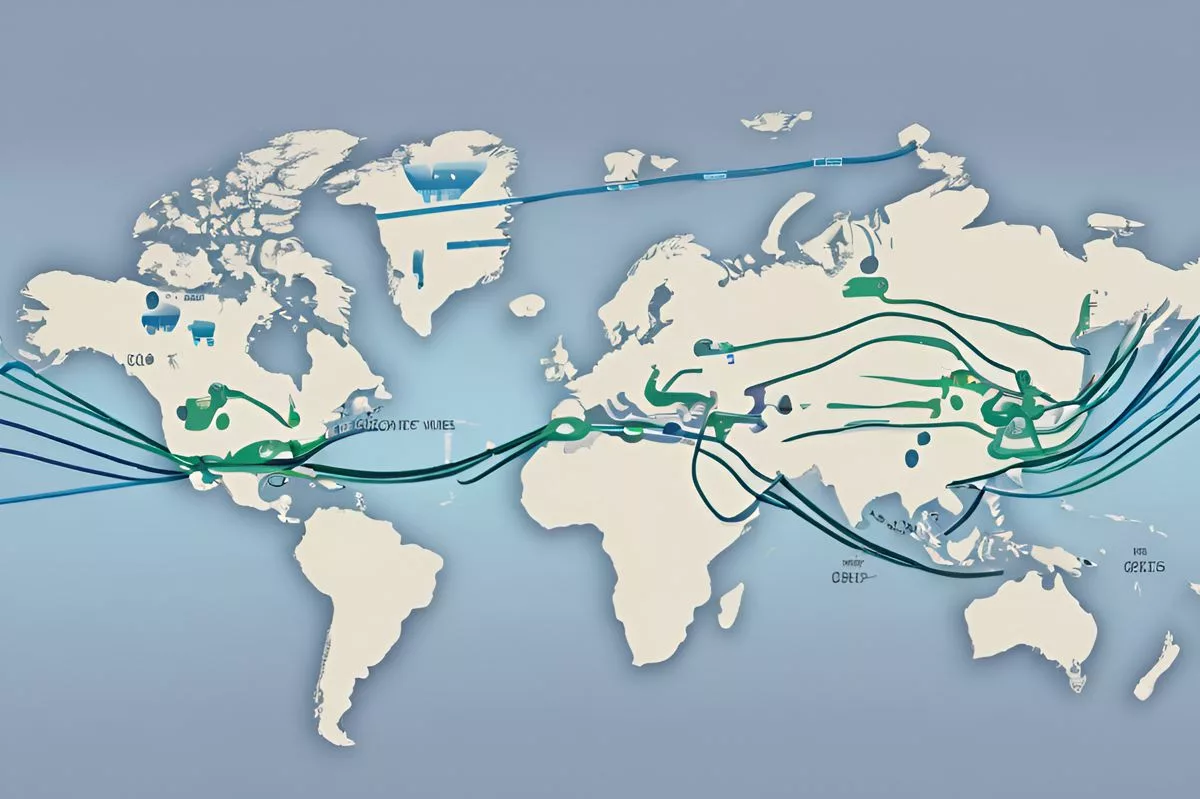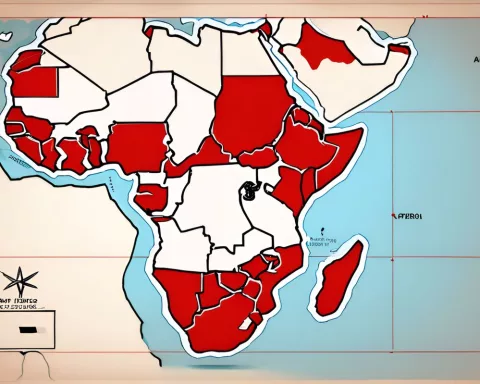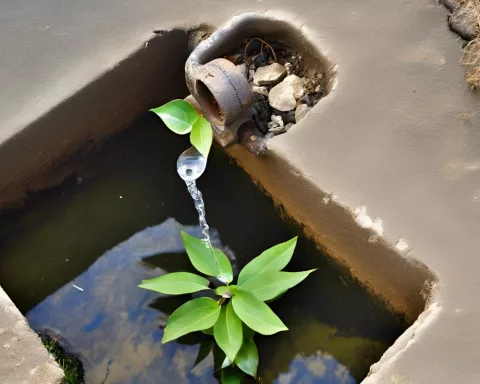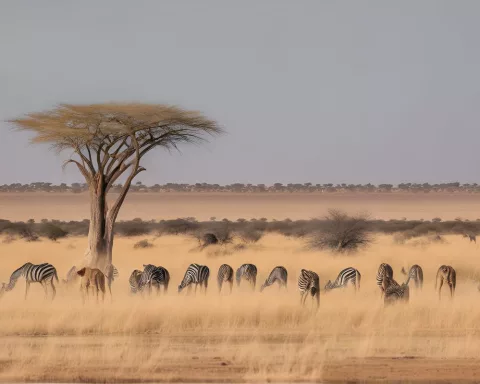The recent internet disruption in Africa caused by damage to at least four submarine communication cables off the west coast of Africa highlights the importance of undersea cables for our digitally-driven global community. The outage led to outages and connectivity issues for mobile operators and internet service providers, with varying degrees of impact across different countries. Major international telecom operators, including Microsoft, experienced knock-on effects, emphasizing our growing reliance on digital infrastructure and the need for sturdy emergency plans.
Africa’s Internet Disruption: A Noteworthy Incident
The recent internet disruption in Africa was caused by damage to at least four submarine communication cables off the west coast of Africa. This led to outages and connectivity issues for both mobile operators and internet service providers, with varying degrees of impact across different countries. The incident highlights the importance of undersea cables for our digitally-driven global community and the need for sturdy emergency plans.
Africa’s Internet Disruption: A Noteworthy Incident
In an era where the internet is deeply embedded in our lives, any internet disruption can create havoc, bringing daily activities to a halt. This was witnessed recently when the African continent went through a massive internet disruption. The problem was traced back to damage in at least four submarine communication cables situated off the west coast of Africa, which led to widespread effects across the continent.
The West Africa Cable System (WACS), MainOne, Sat-3, and ACE sea cables all suffered damage, leading to outages and connectivity issues for both mobile operators and internet service providers. These observations were corroborated by multiple internet analysis firms, including NetBlocks, Kentik, and Cloudflare. However, the exact causes behind these cable faults remain uncertain.
The Importance of Undersea Cables
Undersea cables are crucial for our digitally-driven global community. A significant amount of global internet traffic is funneled through these fiber optic cables that are installed along the ocean floors. Think about cables as long as 15,000km stretching from Portugal to South Africa. This is the enormity of the hidden network that satiates our digital needs.
This situation is eerily reminiscent of a past event. According to ‘The South African’ website’s records, two essential undersea communication cables broke near the Congo River’s mouth in August 2023. It took an entire month to restore normalcy. Thus, this recent incident seems like an unsettling repetition of history, with even more severe consequences.
The Implications of Internet Outages Across Countries
The effects of the outage varied from country to country. Ivory Coast was impacted the most, followed by Liberia, Benin, Ghana, and Burkina Faso. Additionally, Cameroon, Gabon, Namibia, and Niger faced less severe outages. Nigeria and South Africa had relatively milder effects. NetBlocks, a global internet surveillance group, confirmed that connectivity issues persisted, with further drops observed.
This disturbance extended beyond domestic carriers. Major international telecom operators also experienced knock-on effects. Africa’s leading wireless carriers, MTN Group and Vodacom Group, reported connectivity difficulties affecting South African network providers due to the undersea cable faults. They responded by apologizing to their customers and guaranteed that alternative solutions were being employed to return services to normal.
Impact on Major Corporations and Future Implications
In addition, Microsoft Corp. reported disruptions to its cloud services and Microsoft 365 applications throughout Africa. The tech behemoth identified multiple fiber cable damages along the west coast of Africa as the cause for the reduced capacity supporting their South African regions. They also noted that cuts to the Red Sea cable were affecting the eastern coast.
Intriguingly, this cable fault near the Ivory Coast occurred less than a month after three telecommunications cables were severed in the Red Sea, due to the anchor of a cargo ship sunk by Houthi militants.
The fallout from these recurring incidents is multi-faceted. On one hand, they emphasize our growing reliance on digital infrastructure. On the other hand, they point out the weaknesses in this infrastructure and the requirement for sturdy emergency plans. As the world becomes increasingly digitized, the need for dependable and uninterrupted internet services continues to intensify. These incidents serve as a potent reminder of the critical role these undersea cables play in our interlinked digital world.
What caused the recent internet disruption in Africa?
The recent internet disruption in Africa was caused by damage to at least four submarine communication cables off the west coast of Africa, including the West Africa Cable System (WACS), MainOne, Sat-3, and ACE sea cables.
Why are undersea cables important?
Undersea cables are crucial for our digitally-driven global community as they are responsible for funneling a significant amount of global internet traffic through fiber optic cables installed along the ocean floors.
Which countries were impacted the most by the Africa internet disruption?
Ivory Coast was impacted the most by the Africa internet disruption, followed by Liberia, Benin, Ghana, and Burkina Faso. Cameroon, Gabon, Namibia, and Niger faced less severe outages, while Nigeria and South Africa had relatively milder effects.
Which major corporations were impacted by the Africa internet disruption?
Microsoft Corp. reported disruptions to its cloud services and Microsoft 365 applications throughout Africa due to multiple fiber cable damages along the west coast of Africa and cuts to the Red Sea cable affecting the eastern coast.
What is the fallout of these recurring incidents?
These recurring incidents emphasize our growing reliance on digital infrastructure while pointing out the weaknesses in this infrastructure and the need for sturdy emergency plans. As the world becomes increasingly digitized, the need for dependable and uninterrupted internet services continues to intensify.
How long did it take to restore normalcy during a past incident involving undersea cables?
According to ‘The South African’ website’s records, two essential undersea communication cables broke near the Congo River’s mouth in August 2023, and it took an entire month to restore normalcy.












